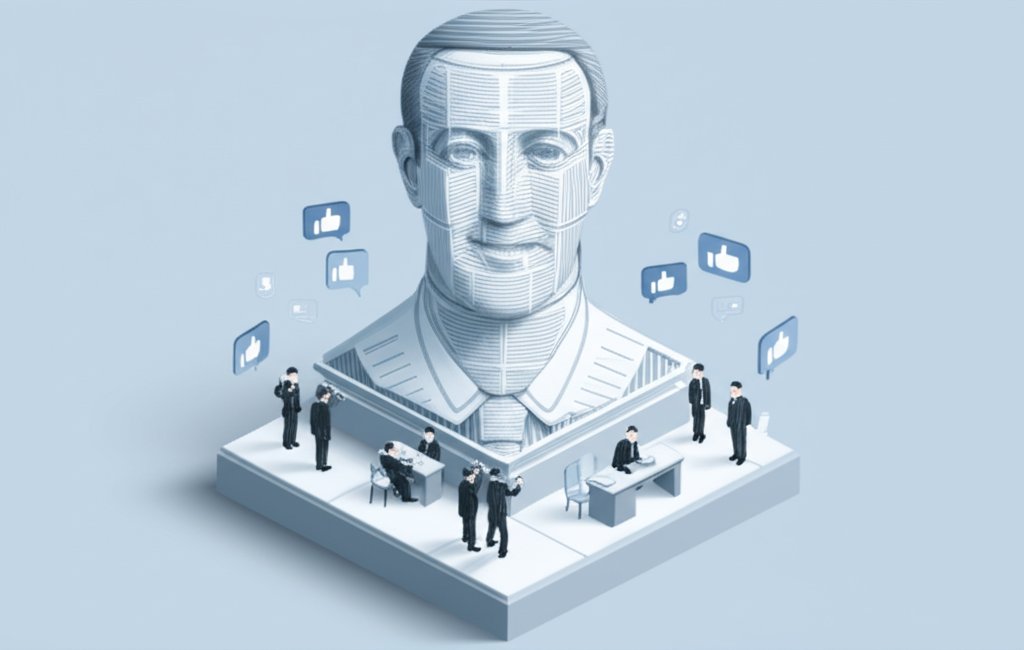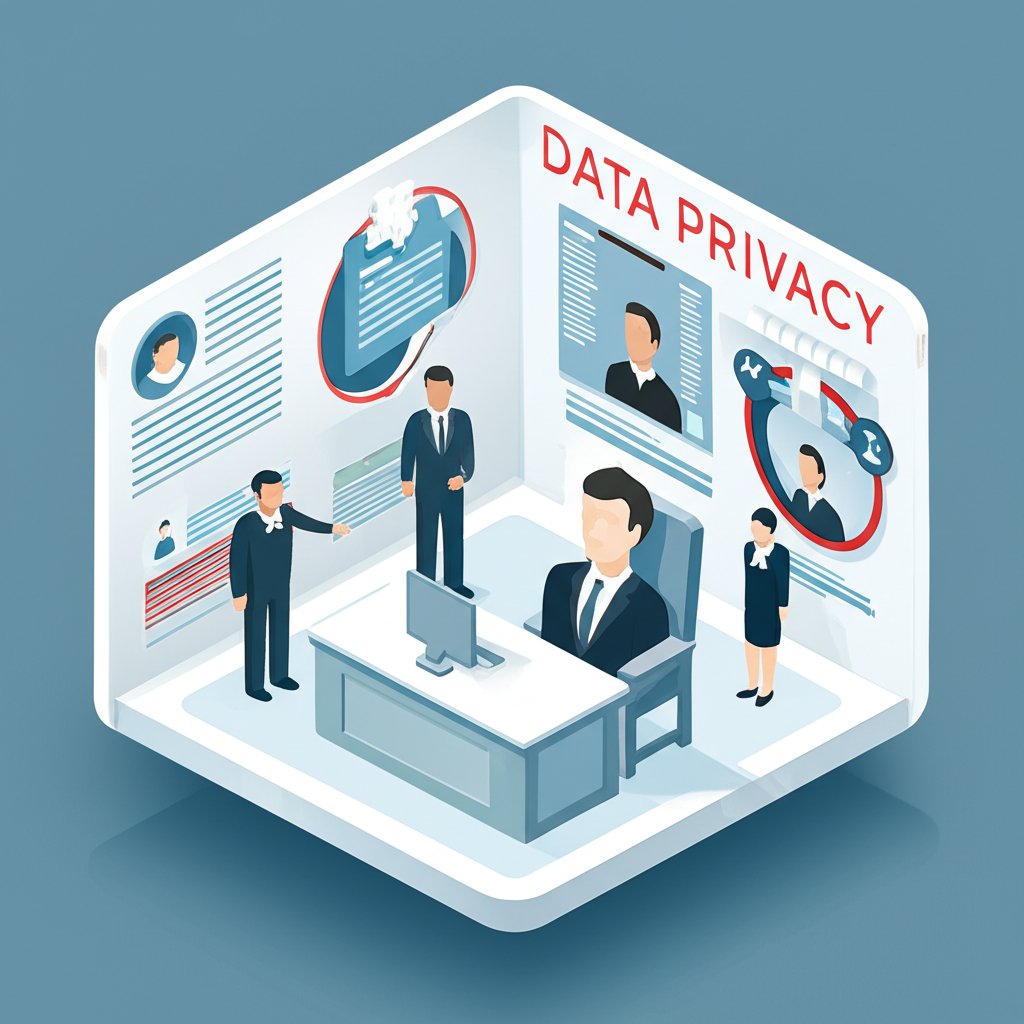Untuk gambaran yang lebih besar dan konteks penuh, pastikan Anda membaca panduan utama kami tentang Mark Zuckerberg Biography: Facebook Founders Rise, Controversies, and Current.
Mark Zuckerberg Lawsuits: Examining The Facebook Founder’s Legal Battles

From accusations of stolen code to questions of data privacy, Mark Zuckerberg’s journey as the head of Facebook (now Meta) hasn’t been without legal turbulence. These ‘mark zuckerberg lawsuits’ offer a glimpse into the high-stakes world of Silicon Valley and the evolving landscape of social media regulation.
At a glance:
- Understand the key lawsuits against Mark Zuckerberg and Facebook/Meta.
- Learn about the legal battles that shaped Facebook’s development and business practices.
- Identify the common themes and potential risks in social media litigation.
- Discover the lessons learned from these legal cases and their impact on the tech industry.
Early Battles: The Seeds of Controversy
Before Facebook even dominated the social media landscape, Zuckerberg faced accusations that would set the tone for future legal challenges. It’s important to understand these early conflicts to appreciate the context of later, larger-scale lawsuits.
- ConnectU Lawsuit (Winklevoss Twins): Perhaps the most well-known early lawsuit involved Harvard seniors Cameron Winklevoss, Tyler Winklevoss, and Divya Narendra. They claimed Zuckerberg stole their idea for a social network called HarvardConnection.com (later ConnectU) while he was supposed to be helping them build it.
- The Claim: Zuckerberg intentionally misled them into believing he would work on their project while secretly developing Facebook, using their code and business concept.
- The Outcome: The case ultimately settled. Facebook agreed to transfer over 1.2 million common shares and pay $20 million in cash to the ConnectU founders. However, further legal wrangling over the settlement terms continued even after the initial agreement.
- Why It Matters: This lawsuit established a precedent for intellectual property disputes in the fast-moving tech world and highlighted the importance of clear agreements and ethical conduct. It also helped cement Zuckerberg’s image as a ruthless competitor. You can Learn Zuckerberg’s Story for more background on his early career and rise to prominence.
The Cambridge Analytica Scandal: Privacy Under Fire
The Cambridge Analytica scandal marked a turning point, catapulting Facebook’s (and Zuckerberg’s) handling of user data into the global spotlight and triggering numerous investigations and lawsuits.
- What Happened: Cambridge Analytica, a political consulting firm, harvested data from millions of Facebook users without their explicit consent. This data was then allegedly used for political advertising and influence campaigns during the 2016 US presidential election and the Brexit referendum.
- The Fallout: Facebook faced intense scrutiny from regulators, lawmakers, and the public. Numerous lawsuits were filed, alleging violations of privacy laws and misleading users about how their data was being used.
- The Legal Battles:
- Federal Trade Commission (FTC) Settlement: Facebook reached a record-breaking $5 billion settlement with the FTC for privacy violations related to the Cambridge Analytica scandal. This agreement also included stricter oversight of Facebook’s data practices.
- Shareholder Lawsuits: Investors filed lawsuits against Facebook, alleging that the company had misled them about the risks associated with its data privacy practices. These lawsuits claimed that Facebook executives, including Zuckerberg, knew about the data privacy issues but failed to disclose them to investors, resulting in stock price declines when the scandal became public.
- User Class Action Lawsuits: Millions of Facebook users joined class-action lawsuits seeking compensation for the unauthorized use of their data. These lawsuits alleged that Facebook violated users’ privacy rights and failed to protect their personal information.
- Zuckerberg’s Response: Zuckerberg testified before Congress, apologizing for the company’s mistakes and promising to improve its data privacy practices. However, his responses were often criticized as being evasive or lacking in specific commitments.
Content Moderation and Misinformation: Navigating a Minefield
As Facebook’s influence grew, so did the scrutiny of its content moderation policies and its role in spreading misinformation, especially regarding elections and public health issues.
- The Challenge: Striking a balance between free speech and preventing the spread of harmful content proved to be a major legal and ethical challenge.
- Key Lawsuits and Conflicts:
- Defamation Lawsuits: Facebook has faced defamation lawsuits related to content posted by users. While Section 230 of the Communications Decency Act generally protects internet platforms from liability for user-generated content, exceptions exist, and the legal landscape is constantly evolving.
- Concerns About Bias: Accusations of political bias in content moderation have also led to scrutiny. Some conservatives have accused Facebook of censoring conservative voices, while others argue that the platform doesn’t do enough to combat hate speech and misinformation.
- COVID-19 Misinformation: During the COVID-19 pandemic, Facebook faced pressure to remove misinformation about the virus and vaccines. Lawsuits have been filed alleging that Facebook’s failure to adequately address misinformation contributed to the spread of the virus.
Antitrust Concerns: Is Facebook Too Big?
Facebook’s acquisitions of Instagram and WhatsApp raised concerns about its market dominance and potential anti-competitive practices.
- The FTC Lawsuit: In 2020, the FTC filed a lawsuit against Facebook, alleging that the company had illegally maintained a monopoly in the social networking market through its acquisitions of Instagram and WhatsApp. The FTC sought to unwind these acquisitions, arguing that they harmed competition and stifled innovation.
- Facebook’s Defense: Facebook argued that its acquisitions were pro-competitive and that it faced competition from other social media platforms such as TikTok and Snapchat.
- The Outcome: While the initial lawsuit was dismissed, the FTC refiled an amended complaint, and the legal battle is ongoing.
Zuckerberg’s Personal Liability: When Does Responsibility Extend to the Top?
A recurring question in many of these lawsuits is the extent to which Mark Zuckerberg, as CEO, can be held personally liable for the actions of Facebook/Meta.
- The “Buck Stops Here” Argument: Plaintiffs often argue that Zuckerberg, as the ultimate decision-maker, should be held accountable for the company’s failures to protect user data, moderate content effectively, or comply with antitrust laws.
- Limited Liability Protections: Corporate law generally shields executives from personal liability for the actions of their companies, unless they are directly involved in the wrongdoing or have knowledge of illegal activity.
- The Debate Continues: The question of Zuckerberg’s personal liability remains a subject of debate, and the legal standards for holding executives accountable are constantly evolving.
Practical Playbook: Navigating the Legal Risks of Social Media
Here’s a breakdown of key considerations for businesses and individuals in the social media age, informed by the ‘mark zuckerberg lawsuits’ and what they reveal about legal pitfalls.
For Businesses:
- Prioritize Data Privacy: Implement robust data privacy policies and ensure compliance with regulations like GDPR and CCPA.
- Content Moderation Policies: Develop clear and consistent content moderation policies to address hate speech, misinformation, and other harmful content.
- Transparency is Key: Be transparent with users about how their data is collected, used, and shared.
- Legal Review: Regularly consult with legal counsel to stay updated on the evolving legal landscape of social media.
- Insurance Coverage: Consider obtaining insurance coverage to protect against potential lawsuits related to data privacy, content moderation, and other legal risks.
For Individuals: - Understand Privacy Settings: Familiarize yourself with the privacy settings on social media platforms and adjust them to protect your personal information.
- Think Before You Post: Be mindful of what you post online and avoid sharing sensitive information or engaging in harmful behavior.
- Report Inappropriate Content: Report any content that violates the platform’s terms of service or that you believe is harmful or illegal.
- Know Your Rights: Understand your rights under data privacy laws and be prepared to exercise them if necessary.
- Document Everything: Keep records of any interactions you have with social media platforms, including reports of inappropriate content or requests for data deletion. This could be crucial should you need to engage legal support.
Quick Answers: Your Legal FAQs About Facebook/Meta
- Can I sue Facebook for emotional distress caused by online harassment? Possibly, but it’s complex. Section 230 often shields platforms, but egregious cases might have grounds for a lawsuit against the individual harasser and potentially the platform if they demonstrably failed to act on reported abuse.
- If my data was compromised in a Facebook data breach, what are my rights? You may have the right to sue for damages. Look for class-action lawsuits related to the breach, or consult with an attorney to explore your options.
- Is Facebook responsible for misinformation spread on its platform? Generally, Section 230 provides immunity. However, there’s increasing debate about whether that immunity should be limited, particularly in cases where the platform actively promotes or amplifies misinformation.
Actionable Close: Stay Informed, Stay Protected
The ‘mark zuckerberg lawsuits’ highlight the ever-increasing legal complexities of the social media landscape. By staying informed about your rights, understanding the potential risks, and taking proactive steps to protect your data and your business, you can navigate this landscape with greater confidence. Don’t wait until you’re facing a legal challenge to take action. Review your policies, update your privacy settings, and consult with legal counsel regularly to ensure you’re prepared for whatever comes next.










